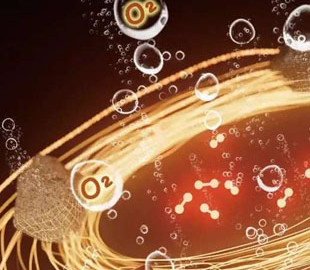
A group of Chinese scientists has created a unique catalyst for oxygen production on Mars, using local resources and artificial intelligence (AI) technologies.
The basis of this breakthrough was the “AI chemist” — an algorithm that performs all stages of chemical research: from creating a formula to synthesizing materials and testing them. The catalyst is developed on the basis of Martian rocks and contains elements that can be found on Mars, including manganese, iron, nickel, magnesium, aluminum and calcium. Automation of research has significantly reduced the time for scientific development, equivalent to over 2,000 years of traditional labor.
The work began with an analysis of the five types of rocks that are most likely to be found on the surface of Mars. The AI analyzed more than 3.7 million possible combinations of chemical compounds, using data from 243 experiments and more than 30,000 theoretical models. As a result of this process, a “polymetallic catalyst” was created, which has optimal properties for the decomposition of water molecules into oxygen and hydrogen. Thanks to this approach, it was possible to adapt the material to conditions that are as close as possible to Martian ones.
The catalyst was synthesized in the laboratory using a robotic system that worked with meteorite rock treated with hydrochloric acid. All stages, including centrifugation at 7,500g, drying of the precipitate, and sample processing, were performed without human intervention. This approach ensured high-precision material fabrication and minimized the risk of errors typical of human intervention.
After completing the laboratory stage, the catalyst was successfully tested in conditions simulating the Martian atmosphere. Its efficiency was comparable to terrestrial analogues, but for its practical use in Martian expeditions, integration into the oxygen production system is necessary. In addition, the scientists emphasized that this approach significantly reduces the cost of transporting materials from Earth, which is a key factor in planning long-term space missions.
It is important to note that, despite the successes in automating the process, the application of the technology in real conditions remains a difficult task. The development demonstrates the enormous potential of AI in solving problems related to the use of local resources in space exploration. However, scientists do not rule out that the delivery of ready-made catalysts from Earth may remain an alternative until production technologies on Mars become more stable.
This research is an important step towards ensuring the autonomy of future space expeditions, because the use of resources from another planet significantly reduces costs and expands the horizons of colonization. The work of Chinese scientists serves as an example of the integration of AI into complex technological processes, which opens up new opportunities for space exploration and development.

